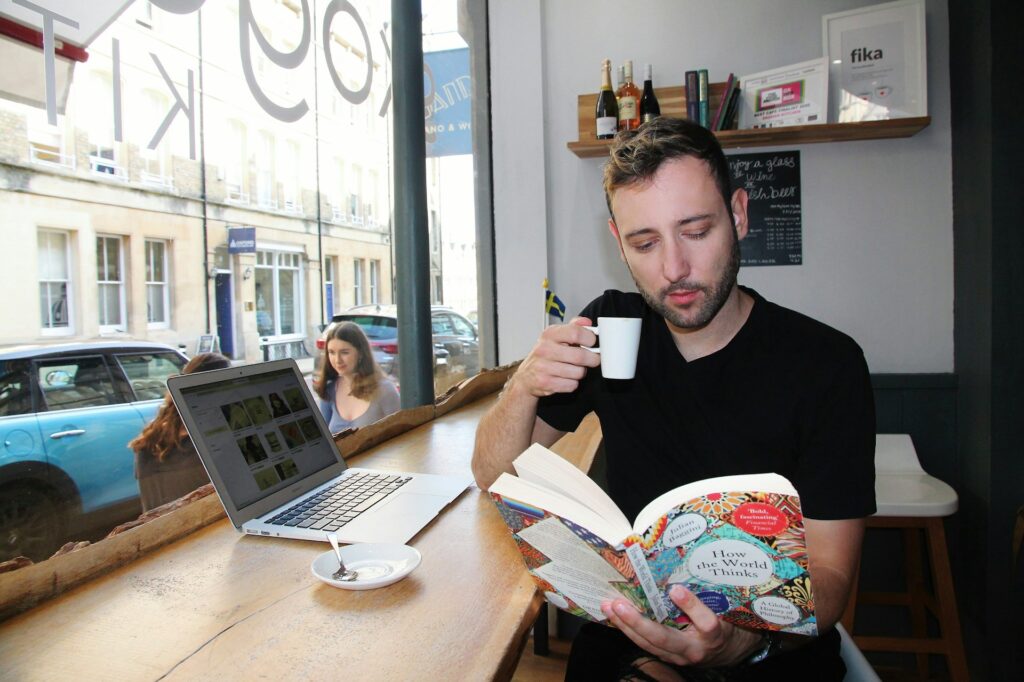There’s a weird pressure in the air to have your whole life mapped out—career nailed, relationships thriving, purpose discovered.

Of course, the truth is, most people are winging it more than they let on. Life isn’t a straight line, and clarity rarely shows up on schedule. If you’re feeling behind, uncertain, or like you missed some secret class on “how to do life,” you’re not alone. Here’s why it’s not just okay to not have it all figured out—it might actually be the best thing for you right now.
1. Growth happens in the in-between spaces.

It’s easy to think progress only happens when you’re achieving something big. However, a lot of real growth happens in those foggy, in-between phases—when you’re reflecting, questioning, or just trying to keep your footing. Not having it all figured out doesn’t mean you’re stuck. It often means you’re evolving. Those quiet, uncertain chapters might not look impressive, but they’re where real change starts taking shape.
2. Everyone’s timeline is different (even if no one admits it).

It might seem like people your age are ahead of you—buying houses, starting families, launching businesses. Of course, behind the curated posts, everyone’s journey has its own detours, delays, and breakdowns. You don’t need to be on someone else’s schedule. Their path isn’t yours, and their pace doesn’t define your progress. You’re not late; you’re just on a different route.
3. Figuring it out often happens backwards.

Clarity rarely arrives in the moment. More often, you look back and realise you were learning something important without knowing it. Things that felt like detours or “wasted time” often become part of the bigger picture later. Just because you can’t connect the dots now doesn’t mean they’re random. Life makes more sense in hindsight. Let the pieces fall where they may—you’ll make sense of them soon enough.
4. You’re allowed to change your mind.

Even if you did have it all figured out at one point, that doesn’t mean it would stay that way. People grow. Priorities change. Dreams evolve. Holding space for change is part of the process. Not knowing what comes next isn’t a crisis—it’s flexibility. It means you’re still open to what life could offer, not just what you thought you wanted five years ago.
5. Sometimes the pressure comes from imaginary expectations.

A lot of the stress to “get it together” doesn’t come from your actual needs; it comes from the version of success you think other people expect. That version often comes with invisible rules that don’t even fit your life. When you start questioning where those expectations came from, the pressure begins to ease. You’re allowed to define success in a way that actually feels good to you.
6. Figuring things out can’t be rushed.

You can’t force insight. You can’t speed up healing or clarity by sheer willpower. Some answers only reveal themselves after time, lived experience, and a few wrong turns. Being patient with yourself isn’t weakness; it’s wisdom. You’re not falling behind by moving slowly. You’re just respecting the pace that your life actually needs.
7. You still have value, even while you’re unsure.

It’s easy to feel like you’re only valuable when you’re clear, focused, and producing results, but you’re not a machine. Your worth doesn’t vanish just because you’re in a season of uncertainty. You’re still worthy of respect, rest, and joy—even if you’re figuring things out as you go. Don’t let confusion convince you that you’ve lost your value. You haven’t.
8. Some things only become clear after you take the next step.

We often wait for certainty before we act. But sometimes, you only find clarity by doing something—anything. Taking a step, even a small one, changes your perspective and shows you something new. You don’t have to see the whole path to move forward. You just need to trust the next step. Action often brings more insight than overthinking ever will.
9. Most people are improvising more than you think,

From the outside, it might seem like everyone else has a plan. But behind the scenes, most people are figuring things out as they go, dealing with doubts, and hoping for the best. There’s no secret blueprint. Just people doing their best, adjusting as they learn, and occasionally crashing into walls. You’re not doing it wrong—you’re just being honest about it.
10. Perfection is a moving target anyway.

Even if you do “figure it out,” life will throw you curveballs. Careers shift. Relationships evolve. The goalposts move. Having it all together is often temporary, and that’s okay. Instead of chasing the perfect plan, focus on staying adaptable. That’s what really helps you thrive when things get unpredictable (because they always do).
11. Not knowing keeps you curious.

When you’re not locked into a certain identity or path, you’re free to explore. Curiosity gets to lead, rather than obligation. That openness can lead you to places you never considered. Having everything figured out might feel safe—but not having it figured out keeps you awake to what else is possible. There’s beauty in that kind of openness.
12. You’re learning things you can’t even name yet.

Every time you sit with confusion instead of running from it, you’re learning resilience. Every time you say “I don’t know” and still show up, you’re building trust with yourself. It might not look like progress, but it’s there. You’re gathering insight, strength, and clarity in ways you might not fully realise until later.
13. You’re not behind—your path just isn’t linear.

The idea that you’re supposed to hit certain milestones by a certain age is outdated. People go back to school in their 40s. They fall in love in their 60s. They discover new callings after retirement. Your path is your own. If it takes you longer, detours included, that doesn’t make it wrong. It just means your journey is unfolding differently, and there’s no shame in that.
14. Life is allowed to feel messy for a while.

You’re not broken because you don’t have all the answers. You’re not failing because your life doesn’t look polished. You’re human. And being human includes confusion, rerouting, and searching. You don’t have to rush to make it all make sense. Some of the most meaningful chapters begin right in the middle of the mess—when you stop pretending to have it all figured out, and start trusting that it’s okay not to.


